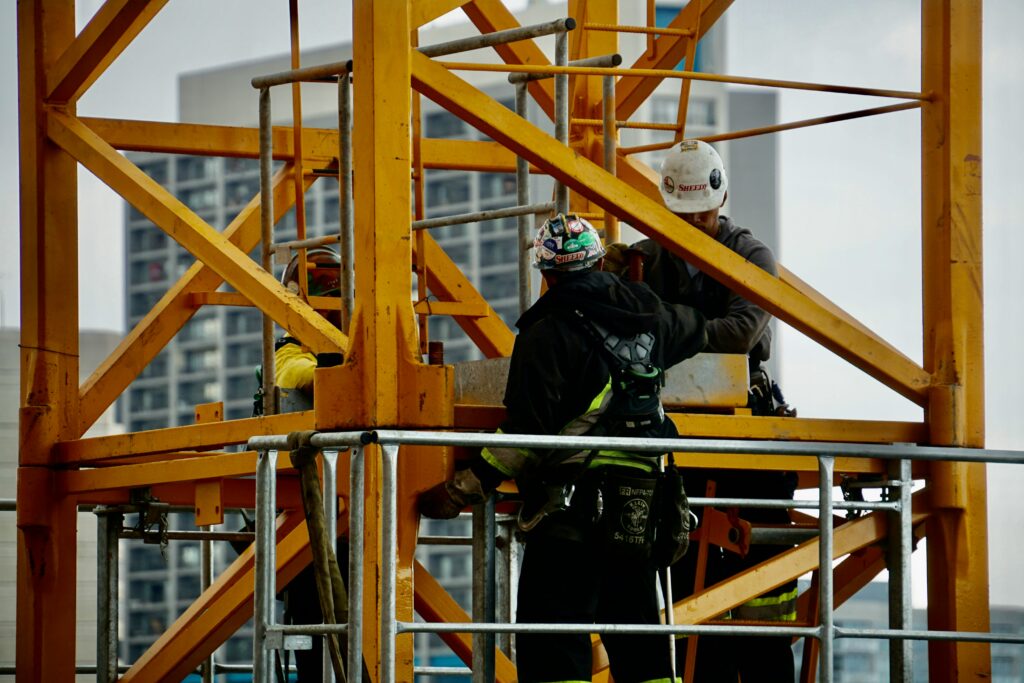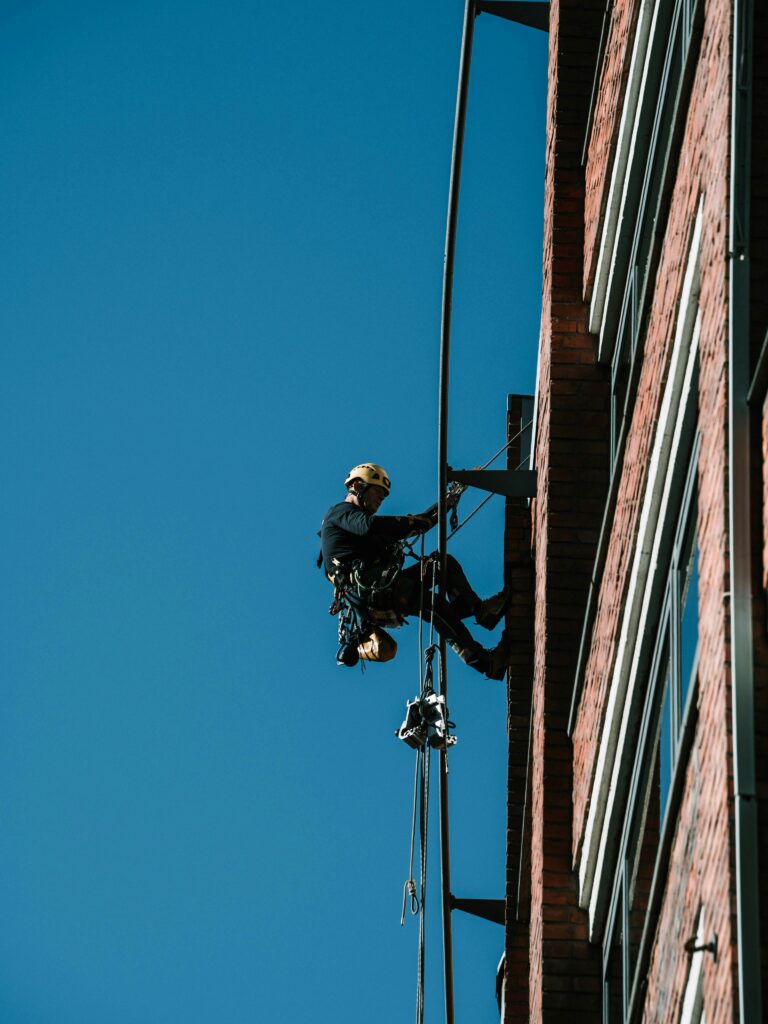Table of Contents
Do Buildings Need Maintenance?
Yes, buildings need maintenance to ensure safety, longevity, and efficiency. Whether residential, commercial, or industrial, regular upkeep helps prevent costly repairs, maintain property value, and create a safe environment for occupants. This guide explores the importance of building maintenance, key tasks, and best practices for long-term care.
Why Do Buildings Need Maintenance?
1. Prevent Structural Damage
Buildings naturally deteriorate over time. Routine inspections help identify cracks, leaks, and foundation issues before they become major concerns. Neglecting minor damages can lead to severe structural failures, requiring costly repairs or even complete reconstruction.
2. Ensure Safety for Occupants
Faulty electrical wiring, plumbing leaks, and HVAC malfunctions can pose safety hazards. Maintenance minimizes risks and keeps buildings compliant with safety regulations. Routine maintenance ensures that fire safety systems, emergency exits, and security measures remain functional, protecting lives.
3. Improve Energy Efficiency
Well-maintained buildings consume less energy. Regular servicing of HVAC systems, insulation checks, and energy-efficient upgrades help reduce utility bills. Simple tasks like sealing air leaks, maintaining lighting systems, and upgrading to energy-efficient appliances contribute significantly to lower energy costs.
4. Reduce Long-Term Repair Costs
Preventive maintenance is more cost-effective than emergency repairs. Addressing minor issues early prevents expensive overhauls. Buildings with consistent upkeep require fewer major renovations and replacements, saving thousands of dollars in the long run.
5. Maintain Aesthetic Appeal
A well-maintained building looks appealing, increases property value, and attracts potential buyers or tenants. Regular painting, landscaping, and façade cleaning not only enhance curb appeal but also protect structural integrity from weather-related damages.

6. Extend the Lifespan of the Building
Buildings that receive regular maintenance last significantly longer than those that are neglected. Routine inspections, timely repairs, and upgrades prevent premature deterioration, allowing buildings to remain functional for decades.
7. Comply with Legal and Regulatory Standards
Local building codes and regulations require property owners to adhere to maintenance standards. Regular maintenance ensures compliance with fire safety, accessibility, and environmental regulations, avoiding legal penalties and potential shutdowns.
8. Prevent Health Issues
Unmaintained buildings can become breeding grounds for mold, pests, and bacteria. Poor air quality, damp environments, and pest infestations can cause serious health problems for occupants. Routine maintenance, such as proper ventilation, plumbing checks, and pest control, keeps the indoor environment safe and healthy.
9. Increase Property Value
A well-maintained property holds its value better than one with neglected upkeep. Potential buyers and investors are more likely to pay a premium for properties that require minimal immediate repairs and upgrades.
10. Enhance Operational Efficiency
For commercial and industrial buildings, proper maintenance ensures that essential systems, such as elevators, HVAC units, and plumbing, operate efficiently. This minimizes downtime, improves productivity, and ensures a smooth operational flow.
What is the General Maintenance of a Building?
Types of Building Maintenance
1. Structural Maintenance
- Inspect and repair cracks in walls and foundations.
- Check for signs of water damage or mold.
2. Electrical System Maintenance
- Regularly test circuit breakers and wiring.
- Replace outdated electrical panels.
3. Plumbing Maintenance
- Fix leaks and unclog drains promptly.
- Inspect pipes for corrosion or damage.
4. HVAC System Maintenance
- Replace air filters every 3-6 months.
- Schedule seasonal servicing to improve efficiency.
5. Fire Safety Maintenance
- Test smoke detectors and fire alarms monthly.
- Ensure fire extinguishers are operational.
6. Security System Maintenance
- Inspect security cameras and access control systems.
- Update security software regularly.
7. Roofing and Gutter Maintenance
- Clear gutters to prevent water damage.
- Check for missing or damaged shingles.
8. Exterior and Landscaping Maintenance
- Maintain lawns, gardens, and outdoor spaces.
- Clean and repaint exterior walls when needed.
9. Cleaning and Sanitation
- Deep clean carpets, floors, and common areas.
- Sanitize bathrooms and kitchens regularly.
10. Elevator and Escalator Maintenance
- Conduct safety tests and lubrication.
- Ensure compliance with building regulations.
Ensure your building stays in top condition!
How Often Should Building Maintenance Be Done?
Daily Maintenance
- Clean common areas and hallways.
- Check for visible damages or leaks.
Weekly Maintenance
- Test security alarms and fire safety systems.
- Inspect plumbing fixtures and water pressure.
Monthly Maintenance
- Change HVAC filters and inspect vents.
- Check electrical panels for issues.
Quarterly Maintenance
- Perform pest control services.
- Service elevators and escalators.
Annual Maintenance
- Roof and foundation inspection.
- Full energy efficiency assessment.

Best Practices for Effective Building Maintenance
- Keep a documented maintenance schedule.
- Use professional service providers.
- Train staff in emergency response protocols.
- Upgrade to energy-efficient systems.
- Conduct regular compliance checks.
Get Professional Building Maintenance Services
FAQs About Building Need Maintenance
1. Do buildings need maintenance regularly?
Yes, regular maintenance prevents major damages and ensures the building stays safe and efficient.
2. What happens if a building is not maintained?
Neglecting maintenance can lead to structural issues, safety hazards, and higher long-term costs.
3. How do I know what maintenance my building needs?
Follow a maintenance checklist that includes structural, electrical, plumbing, and HVAC inspections.
4. Can I do building maintenance myself?
Basic tasks like cleaning and minor repairs can be DIY, but professional services are recommended for major systems.
5. How often should HVAC systems be maintained?
HVAC systems should be serviced at least twice a year to ensure efficiency.
6. What are common maintenance issues in buildings?
Leaks, HVAC failures, electrical issues, and structural wear and tear are the most common problems.
7. Are there legal requirements for building maintenance?
Yes, local regulations often require regular fire safety inspections, structural assessments, and accessibility compliance.
8. How does weather affect building maintenance?
Extreme weather conditions can cause damage to roofs, foundations, and HVAC systems, requiring seasonal maintenance.
9. What is the best way to track building maintenance?
Using digital maintenance management systems helps track tasks, schedules, and repairs efficiently.
10. How do I find a reliable maintenance service provider?
Look for licensed, experienced, and well-reviewed professionals specializing in building maintenance.
Follow us on Facebook for Quick Response & Quires – 24/7 Task Connect